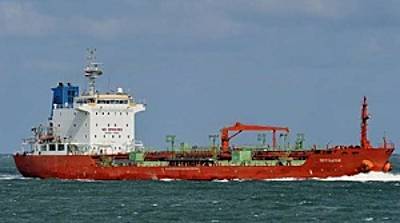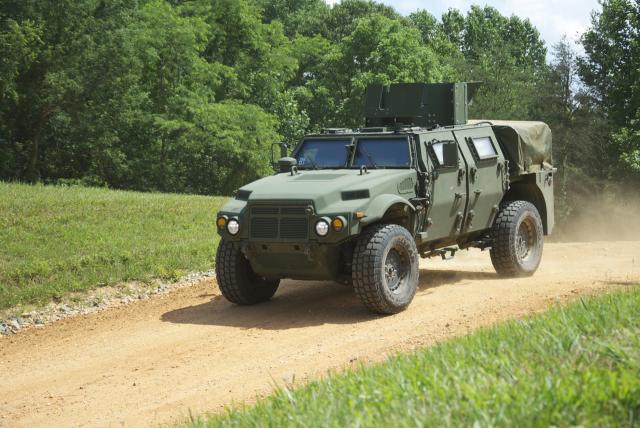WASHINGTON, Feb. 22, 2012 — The Afghanistan Peace and Reintegration Program, established and run by Afghans since 2010, resolves grievances that lead to fighting and delivers peace at a local level, a senior coalition officer said today.
British Royal Marine Maj. Gen. David A. Hook, who directs the force integration cell for NATO’s International Security Assistance Force, spoke with Pentagon reporters via video conference from ISAF headquarters in the Afghan capital of Kabul.
The peace program, which the Afghans implement locally but direct and coordinate nationally, gives insurgents a chance to leave the battlefield peacefully and permanently and rejoin their communities with dignity and honor, Hook said.
“Any counterinsurgency strategy includes a nonmilitary solution that reaches out to insurgents with the goal of peaceful reintegration where everyone benefits,” he added. “This program ambitiously seeks to do this and to deliver peace at a very local level.”
Reintegration is an essential element in the comprehensive counterinsurgency campaign that ISAF Commander Marine Corps Gen. John R. Allen is implementing, he said. A cornerstone of the local approach, he added, is resolving grievances that led people to fight or become insurgents in the first place.
“The overwhelming majority of those fighting in the south and other areas are fighting for nonideological reasons,” Hook said. … Addressing their grievances can draw them back into society.”
An Afghan-led peace program supported by ISAF and the United Nations is central to success, he added.
“The whole aim of the APRP is to build trust and confidence amongst people who have been fighting the government and each other for far too long,” the major general said.
The program has enrolled applicants since October 2010, and so far has vetted — or verified that applicants are not simply criminals, but have taken up arms against the government of Afghanistan — nearly 3,100 former insurgents. Over time, the vetting process has become quite rigorous, Hook said.
“Very early in the program, 231 reintegrees came into the program in Sar-e-Pul … before the vetting process was properly established,” he explained. All were revetted, and 190 were found not to be bona fide insurgents.
“The key thing here is [that] it is the Afghan government that runs this dual-vetting process and the Afghan government [that] decides who should and should not enter the program,” he added.
Those involved in the reintegration process carry out the crucial work, at district and village levels, of negotiating with and reaching out to insurgents, taking them through a three-month demobilization process and reintegrating them into their communities, Hook said.
“We don’t tend to see individuals coming in,” he added. Rather, mid- to low-level leaders decide to come into the program and bring their fighters in with them in groups of five to 25. Hook said that 20 percent to 25 percent of the 3,100 insurgents in the program are mid- to low-level leaders.
Those accepted into the program receive a transitional allowance of $120 a month for three months — an amount the Afghan government calculated would allow a man to feed a family of six in Kabul during demobilization training.
“Once you get to the end of demobilization, you become a normal citizen of Afghanistan, and beyond that, there is no promise that you individually will be rewarded,” Hook said. “This is where you see the power of an Afghan-designed system, because the program focuses on the village that accepts the reintegree back.”
An individual who goes back to his community asks for forgiveness, Hook explained. In 99 percent of cases, the community takes the person back and community and individual are locked together under the Pashtunwali Code, an unwritten ethical code and traditional lifestyle followed by indigenous Pashtun people from Afghanistan and Pakistan.
“The individual has been accepted back and been forgiven, so he now is responsible for his behavior to the community,” Hook said. The community then benefits by being eligible for grants of $25,000 or $200,000. The money is used to improve the community.
The acts of acceptance and community improvement “lock the individual and the community together in a way that makes recidivism incredibly low,” the major general added.
“To date,” he said, “we’re tracking between five and seven who we’ve identified as [probable] recidivists, and another 20 to 25 who we think might be.”
In a program like this, he added, “30 people being recidivists out of 3,100 is an incredibly low number.”
ISAF supports the reintegration program at several levels, Hook said, through various branches of the Joint Secretariat.
“We have a very close relationship,” he added. “And whilst the joint secretariat is building its own capacity, … we provide some extra capacity to help them develop ideas.”
In the meantime, he said, officials are working to more fully understand the dynamics.
“We’re trying to understand the relationship between the surge, the weather and the people who want to give up fighting because they’ve had enough, and those people who are reintegrating,” Hook said.
“It’s more than just understanding 3,100 [reintegrated] insurgents,” he said. “It’s trying to understand a combination of factors and deconstructing which bit is contributing to a safer environment in the area where it’s occurring.”
Source:
U.S. Department of Defense
Office of the Assistant Secretary of Defense (Public Affairs)

 von
von 
